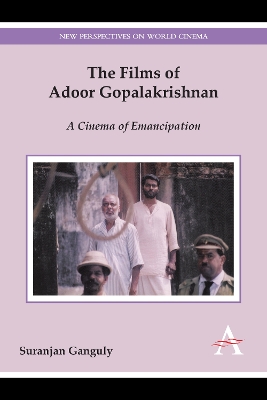New Perspectives on World Cinema
1 total work
This first study of Adoor Gopalakrishnan’s feature films offers a compelling analysis of the socio-historical contexts of his work. Suranjan Ganguly examines how Kerala’s abrupt displacement from a princely feudal state into twentieth-century modernity has shaped Gopalakrishnan’s complex narratives about identity, selfhood and otherness, in which innocence is often at stake, and characters struggle with their consciences. Ganguly places the films within their larger frameworks of guilt and redemption in which the hope of emancipation – moral, spiritual and creative – is real and tangible.
